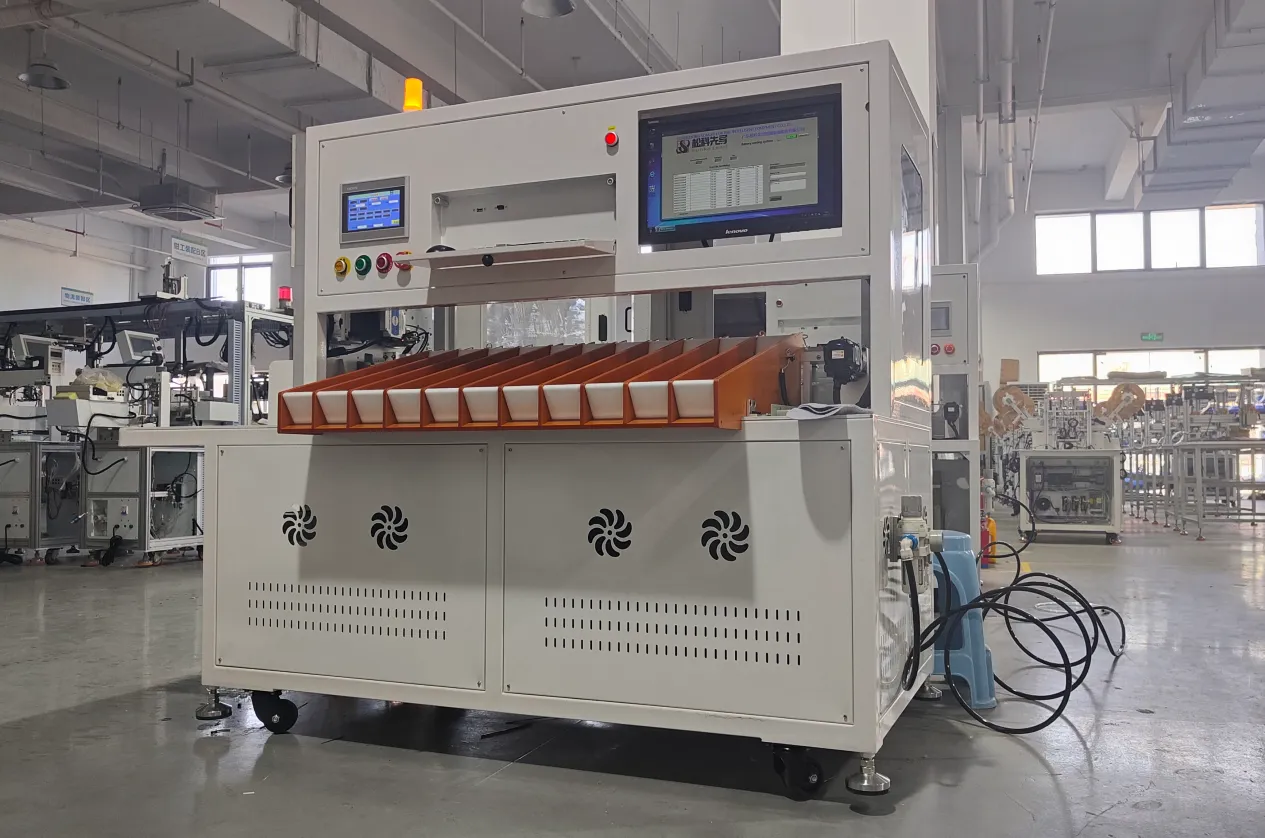In the world of battery manufacturing and usage, battery sorters play a crucial and often under - appreciated role. These devices are not only important for ensuring the quality and performance of batteries but also for enhancing the overall efficiency of battery - related processes.
What is a Battery Sorter?
A battery sorter is a specialized piece of equipment designed to classify batteries based on various parameters. It can sort batteries according to their voltage, capacity, internal resistance, and other electrical characteristics. This sorting process is essential because batteries, even those from the same production batch, can have slight variations in these properties.
Battery sorters come in different shapes and sizes, depending on their intended applications. In small - scale battery production or recycling facilities, compact and portable sorters might be used to handle a relatively small number of batteries. In large - scale manufacturing plants, on the other hand, industrial - grade battery sorters are employed. These large - scale sorters are often automated and can process thousands of batteries per hour, ensuring a high - speed and efficient sorting operation.

The Principle of a Battery Sorter
The operation of a battery sorter is based on a combination of electrical measurement and data analysis techniques.
Electrical Measurement
Firstly, the battery sorter measures the key electrical parameters of each battery. For example, to measure the voltage, the sorter uses a precise voltmeter circuit. When a battery is placed in the sorter, the voltmeter quickly and accurately measures the voltage across the battery terminals. Similarly, to measure the internal resistance, the sorter applies a small, controlled current to the battery and measures the resulting voltage drop. Based on Ohm's law (), the internal resistance can be calculated.
To measure the capacity, the sorter may use a charging and discharging process. It charges the battery to a full state and then discharges it at a controlled rate. By monitoring the current and time during the discharge process, the sorter can calculate the battery's capacity.
Data Analysis
Once the electrical parameters are measured, the battery sorter's built - in microcontroller or computer system analyzes the data. It compares the measured values with pre - set criteria. For example, if the sorter is designed to sort batteries into different voltage ranges, it will check whether the measured voltage of a battery falls within a particular range.
Based on this analysis, the sorter then diverts the battery to the appropriate bin or storage location. This process is repeated for each battery that passes through the sorter, ensuring that batteries with similar characteristics are grouped together.
Importance of Battery Sorters
Battery sorters are of great importance in several aspects. In battery manufacturing, sorting batteries helps to ensure that only high - quality and consistent batteries are sent to the market. This improves the reputation of the manufacturer and enhances customer satisfaction.
In the field of battery recycling, sorters play a vital role in separating different types of batteries and batteries with different states of health. This enables more efficient recycling processes, as batteries with similar properties can be recycled together, reducing costs and environmental impact.
Our Battery Sorter Offer
At Sunka Lead, we offer a range of high - quality battery sorters. Our sorters are equipped with the latest technology, ensuring accurate measurement and efficient sorting. Whether you are a small - scale battery producer or a large - scale recycling enterprise, our battery sorters can meet your specific needs.
Our team of experts is always ready to provide technical support and advice. If you are interested in learning more about our battery sorters or have any questions regarding battery sorting technology, please don't hesitate to contact us. We are here to help you improve your battery - related processes and take your business to the next level.



